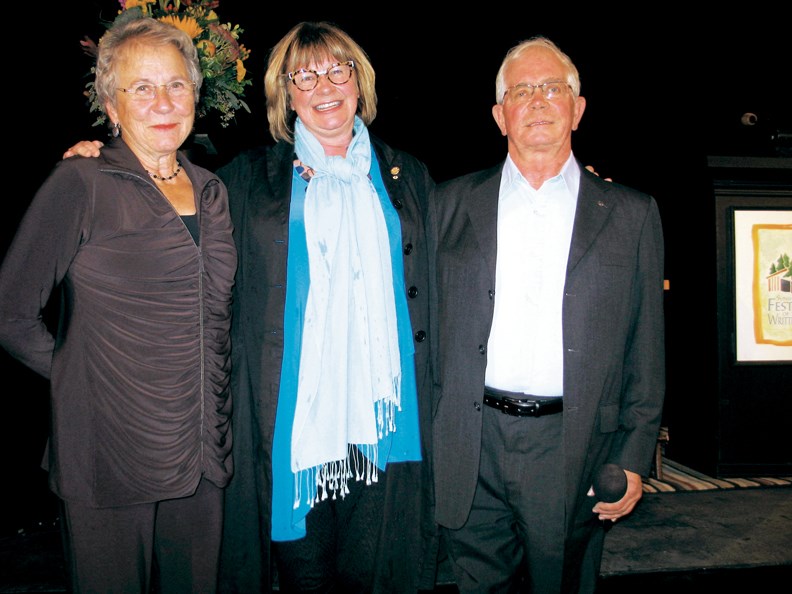Shelagh Rogers knows the power of a story. She is best known as a CBC broadcaster, although in her stellar career, five universities have bestowed honorary doctorates for her contributions to Canadian culture, and she now serves as chancellor of the University of Victoria. In 2011 she was asked to become an honorary witness on the Truth and Reconciliation Commission (TRC) where she would hear the stories of those children who had been forced from their families to live at residential schools. Many survived this experience; others did not return, stricken by abuse, beatings or malnutrition.
Last Saturday a crowd of almost 300 filled the outdoor Rockwood Pavilion in Sechelt on a cold, rainy day to hear Rogers tell stories in a lecture titled I Hear Voices: Reflections on Being an Honorary Witness for the Truth and Reconciliation Commission. The occasion was the annual Clifford Smith Memorial Lecture organized by ElderCollege, a non-profit group of volunteers who offer educational courses to the over 55s.
The concept of witness is important to indigenous people. Rogers noted that the word came from the Old English origin and that it related to having a clean heart. She had to clean up her own life, she told the audience, in order to listen. Her interest began during her CBC program Sounds Like Canada in a series called “Our Home and Native Land.” There were many references to residential schools from the guests on this program. As a non-indigenous person, it was the first she had heard about the subject.
“What must the communities have been like with no children playing in them?” she asked. There were many tears at the commission as the survivors gave their testimony; their tears mingled and were burnt to ashes in the sacred fire. Rogers referred to the TRC as the most important gatherings in our history and she asked the non-indigenous that “we find ways of moving through the pain of our shared colonial past.”
At first she wasn’t sure why she had been invited to witness when others who sat on the commission had been survivors of brutal hardships, but as the audience pointed out to her during question period, she has a voice that is heard across Canada.
“As a journalist I was always ready to get in there and ask another question,” she said. But now she learned to listen – “heart listening” – as she called it. She played a six-minute tape clip in which Rogers asked only one question of Inuit artist Helen Iguptaq: Where were you born? It was enough to launch the artist on her moving tale of being sent away to a mission school at an early age.
The many questions and comments from the audience showed that they listened with their hearts. Some asked if she could help with other issues affecting First Peoples such as the threat of the Site C dam and the missing and murdered indigenous women. Advice from Rogers for how to move forward included being vigilant and attracting attention in the media to the cause.
“Hold our elected representatives to account,” she said. “I want to live in a country that keeps its promises.”
Terry Aleck (Coyote), a residential school survivor, opened the talk with a blessing, and shíshálh Chief Calvin Craigan closed the lecture also asking that we get past this time and determine how to be proactive.
In the past, ElderCollege has brought such figures as Wally Oppal and Bill Good to speak at the annual lecture named for a former School District No. 46 educator, the late Clifford Smith. This lecture was presented in partnership with the Festival of the Written Arts and sponsored by the Sunshine Coast Credit Union.



